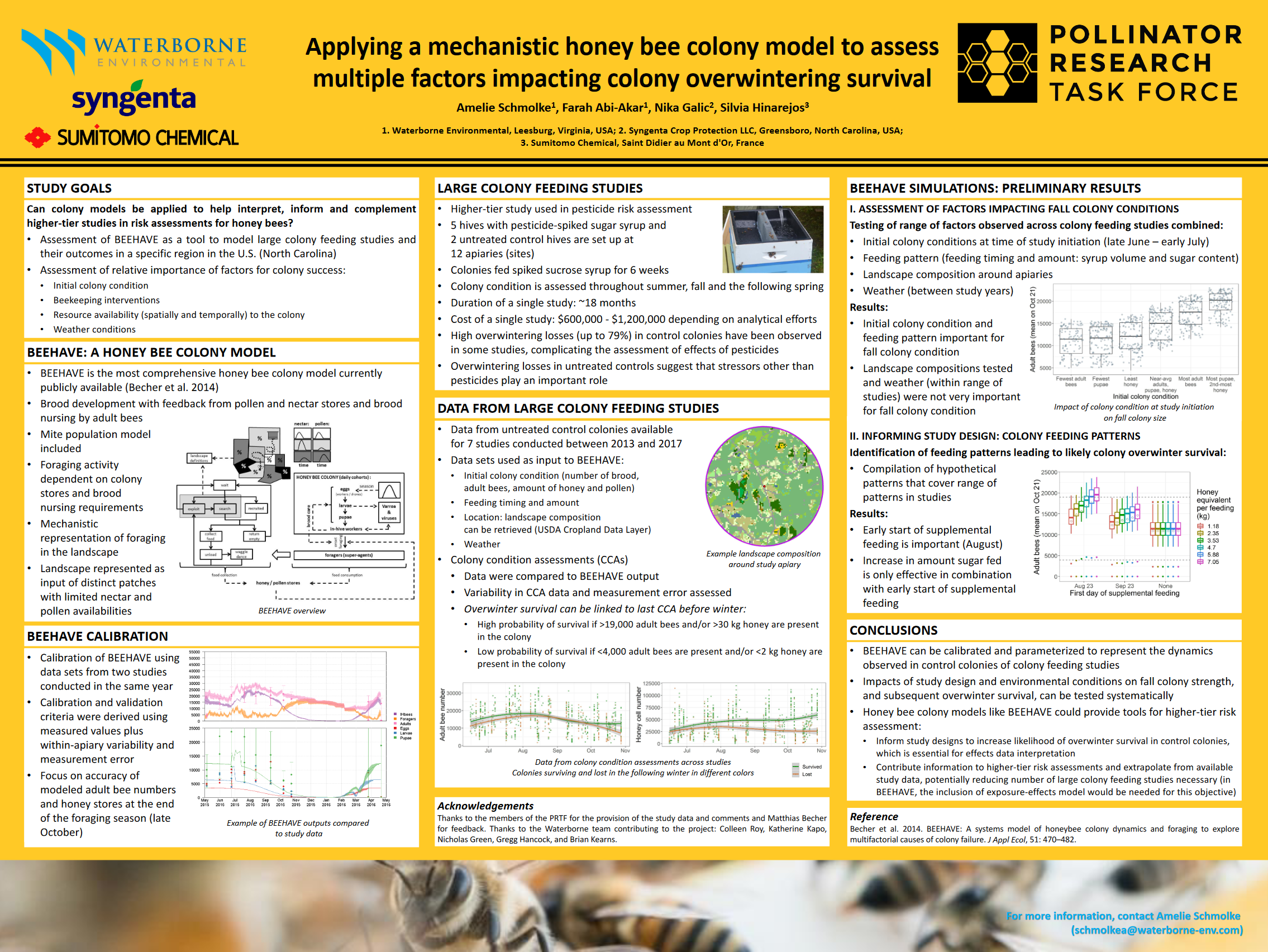Evaluation and improvement of mathematical models used to predict over-wintering success of honey bee colonies
One of the most critical periods of honey bee colony survival is during the winter months when temperatures drop and there may be no external sources of pollen and nectar. The causes of colony overwintering losses are poorly understood and likely include multiple stressors.
The honey bee colony model (BEEHAVE) has been calibrated and validated using control colonies from seven colony feedings studies. Then we have evaluated the application of BEEHAVE to predict overwintering success in control colonies, dependent on external conditions and study design.
Results and Conclusions
- BEEHAVE can be calibrated and parameterized to represent the dynamics observed in control colonies of colony feeding studies.
- Impacts of study design and environmental conditions on fall colony strength, and subsequent overwinter survival, can be tested systematically.
- Honey bee colony models like BEEHAVE can inform study designs to increase likelihood of overwinter survival in control colonies, which is essential for effects data interpretation.
- In this project qualitative and categorical recommendations can be provided based on study data from the available colony feeding studies, all conducted in North Carolina. Extrapolation to other conditions, especially other climatic regions, would require corresponding study data.
- BEEHAVE simulations cannot be used to make precise prediction of colony conditions. However, simulations can show the importance of factors and their interactions.

